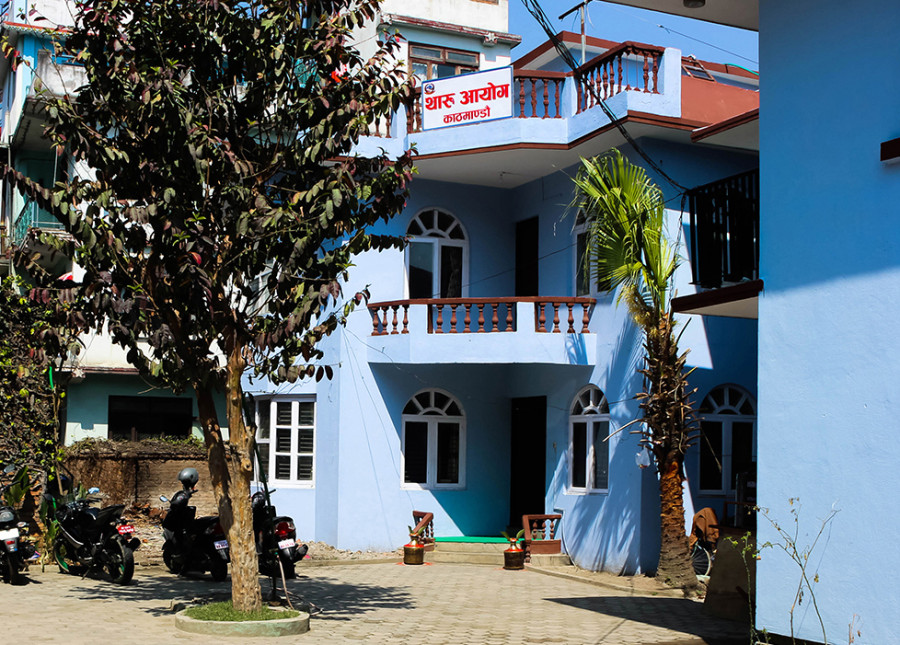Politics
With just over half their terms remaining, constitutional commissions remain vacant
The Constitutional Council, which recommends members to the commissions, has not met in nearly a year.
Binod Ghimire
The council, which convenes under Prime Minister KP Sharma Oli, had been called to meet on October 22 and again on November 13, but they were deferred each time as Nepali Congress President Sher Bahadur Deuba, a council member, failed to show up.
“There is no plan to hold a council meeting anytime soon,” Surya Thapa, Oli’s press advisor, told the Post.
Earlier, the prime minister's office had said that a meeting would be called after the November by-elections. But the polls were held on November 30 and the meeting has yet to take place.
The 2015 constitution has mandated eight constitutional commissions—Tharu, Women, Dalit, Inclusion, Madhesi, Muslim, Indigenous Nationalities, and Natural Resources and Fiscal—to ensure inclusion and ensure the rights of marginalised communities. The Women, Dalit, Indigenous Nationalities and Inclusion commissions are all without chiefs while the other four are without members.
The major bone of contention for the council has been the intransigence of the opposition Nepali Congress. The party had boycotted the hearing of chairpersons for the Tharu, Madhesi, Muslim and Inclusion commissions on the grounds that the council had selected names without its input. However, Shanta Raj Subedi subsequently resigned as head of the Inclusion Commission, once again leaving the commission without a chief.
The Women, Dalit and Indigenous Nationalities commissions have all been without chiefs and members since 2015.
These commissions have a 10-year mandate, beginning from the day of constitution promulgation, to work for the empowerment of their respective communities and ensure their participation in socio-political life. Successive governments—led by the CPN-UML, CPN (Maoist Centre) and Nepali Congress—have all failed to appoint office bearers to the commissions. The incumbent government, which has been in power for two years, has also shown little urgency in making appointments.
Ganesh Timilsina, chair of the National Assembly, told the Post that he will be meeting with Oli soon to talk about the council meeting.
“To my knowledge, the prime minister wants the appointments to be made in consensus with the main opposition,” Timilsina said. “I believe the House of Representatives will have a Deputy Speaker by then.”
The Constitutional Council recommends members and chiefs to the constitutional bodies, members of the judiciary, and ambassadors. The council is made up of seven members, which include the prime minister, leader of the opposition, chair of the National Assembly, Speaker and Deputy Speaker of the House of Representatives, Chief Justice, and Law Minister, whenever the decision concerns the judiciary.
The Deputy Speaker position has been vacant ever since Shiva Maya Tumbahangphe resigned on January 20. Timilsina, however, said that the meeting can be held in the absence of one member.
Rights activists are concerned that the appointments are taking so long. Nearly half of the commissions’ 10-year mandate has expired and half of them haven’t even gotten a chance to work.
“Appointments in the commissions shouldn’t be stalled under any pretension,” said Raju Campaign, a human rights lawyer. “The delay in the appointments shows just how apathetic the government and the parties are towards marginalised and disadvantaged communities.”
Apart from these eight commissions, Election Commission, Commission for Investigation of Abuse of Authority and National Human Rights Commission are the other constitutional bodies with varying mandates. Both the Election Commission and the Commission for Investigation of Abuse of Authority too have been incomplete for around a year. Both the commissions lack two members each, from a total of five members.




 21.12°C Kathmandu
21.12°C Kathmandu















